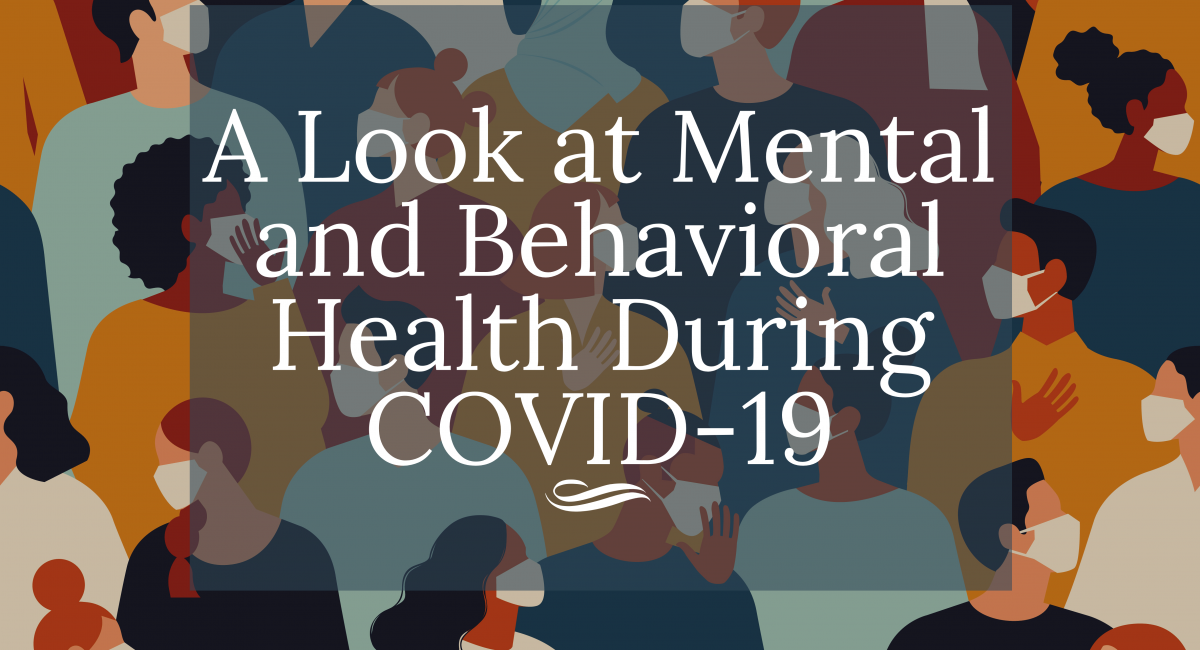As word of the pandemic spread across the world, there was a lot of talk about hand-washing, hygiene, and cleanliness. Recommendations regarding the virus were everywhere, toilet paper was flying off the shelves, and cleaning products were the items of the year.
Reminding people of the importance of keeping things sanitized could not be understated during the uncertainty that permeated the beginning months. After all, it took a little time to fully understand the virus and its main vectors of transmission. And yet, as “normal life” was forced to adapt to changing circumstances and amidst the talk about staying healthy and wearing masks, there was perhaps not enough attention rendered to the indirect consequences of something so wide-scale that it would impact every person in the country, the economy, the way we go to work, school, and the way we socialize.
Wearing masks and maintaining sanitized environments are crucial and we here at Transmountain Primary Care are doing everything to maintain our facility safe, but we also want to talk about some of the other effects that might be emerging as a result of something so unprecedented.
The Importance of Mental Health and Behavioral Health
As a primary care clinic, we are the first stop for many people that are experiencing hardship in their lives. Health is not only physical but also emotional. The state of our emotional lives and mental well-being can have a great impact on our physical health and our ability to lead healthy and active lifestyles. It’s why we take this aspect of health very seriously.
Behavioral and mental health are two distinct fields of care with a lot of overlap and closely intertwined. When a society’s behavior is suddenly altered people begin to experience alterations in the way they live their lives. Their futures are suddenly uncertain, their economist ability shaken, and the ‘normal’ state of things badly distorted. This leads to anxiety, depression, or other mental health issues. Mental health professionals and researchers are currently out there documenting the ways that the pandemic is affecting various populations and helping spread information about how to mitigate some of this. Experts report that Americans are experiencing symptoms of anxiety and depression that are exacerbated by related stressors like job loss, evictions, isolation, loss of socialization, travel restrictions, and more. For people that were already experiencing depression or anxiety disorders, the effects of COVID-19 might be even more detrimental.
In August, The Centers for Disease Control and Prevention reported a 41% increase in reports of adverse mental health and behavioral health conditions that were associated with the pandemic.
According to some health research, adults with small children or adults helping take care of elderly parents are experiencing some of the worst mental health effects. Youn parents, who are navigating the stress of long-distance learning and dealing with their own work, are also suffering from increasing pressure and stress.
Tips To Maintain Mental Health During the Pandemic and Beyond
While it is impossible to see into the future, news of the vaccine and the initial vaccinations, people are likely to relax a little more. Yet, many cities in the United States are still largely shut down or experiencing considerable economic uncertainty as effects of the pandemic. So here are tips on how to stay active and avoid falling into a slump:
- Get the heart rate going. It’s true that many places have shut down gyms and other recreational centers, but getting outdoors and getting exercise will probably have some of the biggest impacts on your health. It not only has short-term physical and mental benefits like easing stress, relaxation, and immediate mood boost, but it also has long-term effects by improving overall health.
- Find relaxation methods or adopt a new passion. If you’re stuck at home or not able to get out as much as you would like, maybe it’s that time to take on that hobby you could never get around to. Learning a new skill or delving into something new, gives your mind something else to focus on and has all the benefits of staying active and productive.
- Don’t obsess over the news. Especially in the beginning, many people found themselves preoccupied with every minute of the news. Many watched obsessively for updates, watching the news cycle like the hands of a clock. Staying glued to news sources or the television will overload your mind and increase feelings of stress.
- Keep connections. Meeting through Zoom or other video conferencing services is not the same, but it can make the difference between feeling completely isolated and getting some form of social interaction. Don’t steer away from your connections. Instead, keep those connections close by talking often.
Feeling anxious in a time like this can be normal, but when that anxiety begins to spill over to every aspect of your life and take dominion of your actions and behavior, it might be time to seek professional help. This line can get difficult to identify for a lot of people, as some will identify the panic-ridden feelings as just normal stress. If the stress is impacting your lifestyle, preventing you from enjoying things you used to love, or disconnecting from everybody, it is time to seek help.
Here at Transmountain Primary Care, we are on the front lines of people’s health and well-being. Behavioral health is a big part of what we do. Connect with us today and learn more about how we can help you achieve optimal health.

